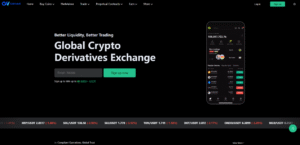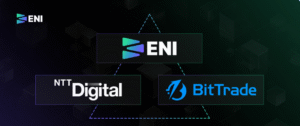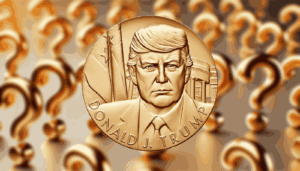
Advantages of Decentralized Exchanges: Transparency, Security, and Control
Decentralized exchanges have gained significant traction in the cryptocurrency ecosystem due to their unique advantages. Unlike centralized exchanges, which act as custodians of users’ funds, decentralized exchanges operate on a peer-to-peer basis. This ensures greater transparency, security, and control for cryptocurrency traders.
Understanding Decentralized Exchanges
Decentralized exchanges, often referred to as DEXs, are platforms that allow users to trade cryptocurrencies directly with one another. These exchanges leverage blockchain technology and smart contracts to automate trading processes, eliminating the need for intermediaries. DEXs provide a more decentralized and user-centric alternative to centralized exchanges. Decentralized exchanges, also known as DEXs, are a type of cryptocurrency exchange that operates on a peer-to-peer basis, without the need for intermediaries. Unlike traditional centralized exchanges, DEXs enable users to trade cryptocurrencies directly with one another using blockchain technology and smart contracts. This decentralized approach offers several advantages, including transparency, enhanced security, and user control. Transactions on DEXs are recorded on the blockchain, ensuring transparency and reducing the risk of fraud. Users retain control of their funds and private keys, enhancing security. DEXs also enable seamless cross-border transactions and often have lower fees compared to centralized exchanges.
Transparency in Decentralized Exchanges
One of the key advantages of decentralized exchanges is the transparency they offer. Every transaction on a DEX is recorded on the blockchain, providing an immutable and publicly verifiable record. This transparency ensures that all trades are visible to participants, reducing the risk of fraudulent activities and market manipulation.
Enhanced Security
Decentralized exchanges prioritize security by eliminating the need for users to deposit their funds into a centralized platform. With DEXs, traders retain control of their private keys and wallets, reducing the risk of hacks or thefts associated with centralized exchanges. Additionally, the use of smart contracts ensures that trades are executed only when predefined conditions are met, further enhancing security.
User Control and Privacy
Decentralized exchanges empower users with greater control over their funds and personal information. Users remain in possession of their private keys, allowing them to maintain ownership and full control over their assets. Moreover, DEXs do not require users to undergo time-consuming Know Your Customer (KYC) processes, preserving their privacy and anonymity.
Seamless Cross-Border Transactions
Traditional centralized exchanges often face challenges when it comes to cross-border transactions due to varying regulatory frameworks. Decentralized exchanges overcome these barriers by operating on a global scale. DEXs facilitate direct peer-to-peer transactions across borders, enabling users to trade cryptocurrencies seamlessly without the need for intermediaries or geographical restrictions.
Lower Costs and Fees
Compared to centralized exchanges, decentralized exchanges generally have lower fees. DEXs eliminate the costs associated with intermediaries and intermediation services, resulting in reduced trading fees. Furthermore, the absence of withdrawal and deposit fees, which are common in centralized exchanges, makes DEXs more cost-effective for traders.
Liquidity and Market Depth
Liquidity is a critical factor in any exchange. While some decentralized exchanges initially faced liquidity challenges, innovative solutions such as automated market makers (AMMs) have addressed this issue. AMMs enable liquidity providers to pool their funds, ensuring continuous liquidity and market depth. As a result, traders can execute trades quickly and efficiently.
The Role of Smart Contracts
Smart contracts play a crucial role in facilitating trades on decentralized exchanges. These self-executing contracts automatically execute trades when predefined conditions are met, removing the need for intermediaries. Smart contracts provide transparency, efficiency, and trust in the trading process, enhancing the overall user experience.

Potential Risks and Challenges
While decentralized exchanges offer numerous advantages, it is important to be aware of potential risks and challenges. Smart contract vulnerabilities, lack of liquidity for certain tokens, and regulatory uncertainties are some of the challenges that DEXs face. Users should exercise caution, conduct thorough research, and be mindful of the risks associated with trading on decentralized exchanges.
- Smart contract vulnerabilities: Decentralized exchanges rely on smart contracts to execute trades automatically. However, these contracts may contain coding errors or vulnerabilities that could be exploited by malicious actors.
- Lack of liquidity for certain tokens: While liquidity has improved in decentralized exchanges, some tokens may still face challenges in terms of liquidity. Low liquidity can result in slippage and difficulties in executing trades at desired prices.
- Regulatory uncertainties: The regulatory landscape surrounding decentralized exchanges is still evolving. Government authorities are grappling with how to address issues such as investor protection, money laundering, and fraud in the decentralized finance (DeFi) space. Uncertainties regarding compliance requirements and regulatory actions can impact the operation of DEXs.
- User errors and security risks: Users of decentralized exchanges are responsible for managing their private keys and wallets. Any mistakes in handling these cryptographic keys or wallet security can result in the loss of funds. Additionally, phishing attacks and social engineering tactics pose risks to user security.
- Limited user support: Unlike centralized exchanges that often provide customer support services, decentralized exchanges may have limited user support options. Users may face challenges in getting assistance or resolving issues related to their trades or accounts.
- Price volatility and slippage: Cryptocurrency markets are known for their volatility, and decentralized exchanges are not immune to price fluctuations. Sudden price movements can lead to slippage, where trades are executed at different prices than expected.
- Scalability and performance: As decentralized exchanges continue to gain popularity, scalability and performance challenges may arise. Handling a large number of transactions on the blockchain can impact the speed and efficiency of DEXs.
- Interoperability: Interoperability between different decentralized exchanges and blockchain networks is a challenge. Ensuring seamless communication and compatibility across various protocols and networks can be complex.
- Market manipulation: Although decentralized exchanges aim to provide transparency, market manipulation can still occur. Strategies such as wash trading and spoofing can distort market prices and mislead traders.
- User adoption and awareness: Despite their advantages, decentralized exchanges are still relatively new and may lack widespread user adoption. Educating users about the benefits and functionalities of DEXs is crucial for their broader acceptance and usage.
It is important for users to be aware of these risks and challenges and exercise caution when using decentralized exchanges. Conducting thorough research, implementing proper security measures, and staying informed about regulatory developments can help mitigate these risks.
Government Regulations and Compliance
Government regulations and compliance requirements pose ongoing challenges to the development and adoption of decentralized exchanges. As DEXs continue to grow in popularity, regulators are exploring ways to address potential risks related to money laundering, fraud, and investor protection. Striking a balance between regulatory compliance and preserving the decentralized nature of exchanges is crucial for the future of DEXs. Government regulations and compliance play a crucial role in shaping the landscape of decentralized exchanges (DEXs). As the popularity of DEXs grows, regulators are actively exploring ways to address potential risks such as money laundering, fraud, and investor protection. Striking a balance between regulatory compliance and preserving the decentralized nature of exchanges is a key challenge. Government authorities are working to develop frameworks that ensure fair market practices while fostering innovation in the blockchain industry. Compliance requirements, such as Know Your Customer (KYC) and Anti-Money Laundering (AML) measures, may be implemented to mitigate risks. DEXs that embrace regulatory compliance can gain credibility, trust, and wider adoption in the market.
Future of Decentralized Exchanges
The future of decentralized exchanges looks promising. As the technology and infrastructure supporting DEXs continue to evolve, we can expect improved user experiences, increased liquidity, and enhanced security measures. The integration of decentralized finance (DeFi) protocols with DEXs is also likely to expand the functionality and utility of these exchanges. The future of decentralized exchanges (DEXs) is filled with promise and potential as these platforms continue to reshape the landscape of cryptocurrency trading. DEXs are evolving to offer improved user experiences, focusing on intuitive interfaces and seamless functionality. Additionally, the integration of decentralized finance (DeFi) protocols into DEXs expands their capabilities, enabling users to access a wide range of financial services. With ongoing advancements in security measures and smart contract auditing, DEXs are becoming more secure and trustworthy for users. As regulators establish clearer frameworks and guidelines, compliant DEXs have the opportunity to flourish, providing a regulated yet decentralized trading environment. These developments, coupled with the increasing demand for decentralized and user-centric financial systems, indicate a bright future for DEXs, with widespread adoption and mainstream acceptance on the horizon.
Conclusion
Decentralized exchanges offer numerous advantages over their centralized counterparts. They provide transparency, enhanced security, and user control, empowering individuals to participate in the cryptocurrency market with confidence. While there are challenges to overcome, the future of DEXs looks bright as they continue to reshape the landscape of digital asset trading.
FAQs (Frequently Asked Questions)
Q1: Are decentralized exchanges safer than centralized exchanges?
A1: Decentralized exchanges offer enhanced security as users maintain control of their funds and private keys, reducing the risk of hacks or thefts associated with centralized exchanges.
Q2: Do decentralized exchanges require KYC verification?
A2: Unlike many centralized exchanges, decentralized exchanges do not typically require users to undergo time-consuming Know Your Customer (KYC) verification processes, preserving their privacy and anonymity.
Q3: Can decentralized exchanges facilitate cross-border transactions?
A3: Yes, decentralized exchanges enable seamless cross-border transactions by operating on a global scale, allowing users to trade cryptocurrencies without geographical restrictions.
Q4: Do decentralized exchanges have lower fees compared to centralized exchanges?
A4: Yes, decentralized exchanges generally have lower fees as they eliminate intermediaries and intermediation services commonly found in centralized exchanges.
Q5: What is the future of decentralized exchanges?
A5: The future of decentralized exchanges looks promising, with improved user experiences, increased liquidity, and integration with decentralized finance (DeFi) protocols expected to drive their growth and utility.
I have worked in the cryptocurrency industry for over 5 years and have written numerous articles on the subject. I am well-versed in all aspects of cryptocurrencies and blockchain technology, and am an expert in the field.









